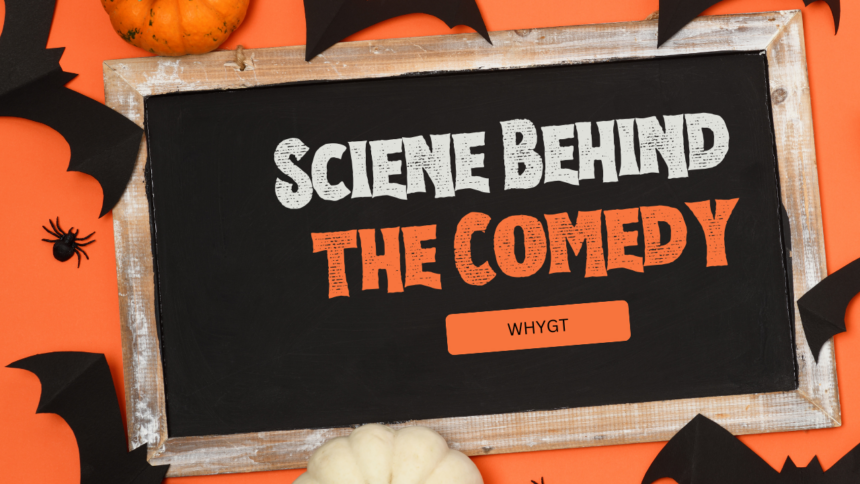A few months ago, I watched a stand-up bit where the comic went on a 10-minute rant about airline food. Nothing original, right? But halfway through, I was laughing so hard I almost dropped my drink. Not because the material was new, but because the delivery nailed it.
That got me thinking why do we laugh at some things and not others? What actually makes something funny?
Turns out, humor isn’t random. There’s a lot happening under the hood in our brains, in the timing, and in the way something unexpected can catch us completely off guard.
Surprise Is Everything
At its core, comedy is built on surprise. You expect the story to go one way… and then it doesn’t.
Here’s a simple example:“I told my wife she was drawing her eyebrows too high. She looked surprised.”
It’s short, it’s silly but it works. You think you know where it’s headed, then it flips.
This “setup and twist” idea is everywhere. In one-liners, in sitcoms, even in memes. Our brains crave patterns, so when something breaks that pattern in just the right way, we laugh.
Timing Is a Secret Weapon
Have you ever heard someone tell a joke that should be funny… but it just lands flat? A lot of the time, it’s the timing.
A beat too early or too late and the magic’s gone.
Great comics have a feel for rhythm. They build tension, then release it. They pause just enough to let your brain fill in the blank, then hit you with the punchline. That split-second gap? That’s where the laugh lives.
Shared Experience Makes Things Funnier
Ever notice how inside jokes are hilarious with your friends but make no sense to outsiders? That’s shared experience at work.
Comedy often clicks when it reflects something familiar awkward moments, cultural quirks, day-to-day struggles. The more a joke connects with your life, the funnier it feels.
That’s why a joke about losing Wi-Fi during a video call hits harder now than it did five years ago. Humor moves with us.
We Laugh to Connect
Laughter’s not just about the joke. It’s social glue. Think about how often we laugh with people, not just at something funny.
You’re more likely to laugh at a so-so joke if your friend is already cracking up. It’s contagious and that’s part of the point.
Researchers have even found that we’re more likely to laugh in groups, even when watching the same material alone gets barely a chuckle. It’s less about logic, more about bonding.
The Weird Way Our Brains Process Humor
When we hear something funny, our brains light up in a bunch of different areas language centers, memory, even parts tied to emotion. Humor asks the brain to juggle multiple things at once: understanding the context, spotting the twist, and reacting emotionally.
It’s a workout. But a fun one.
Some scientists even suggest that laughter helps us process things that are awkward or uncomfortable giving us a safe way to deal with tension.
Ever laughed at a funeral joke and then immediately felt guilty? That’s your brain trying to balance emotional release with social awareness.
Not Everyone Laughs at the Same Things And That’s Okay
What cracks one person up might leave someone else staring blankly. That’s normal.
Humor is shaped by culture, age, personality, even language. Dry wit, slapstick, sarcasm some folks love it, others don’t. And comedy evolves. What was funny ten years ago might feel stale now or worse.
But that variety is what keeps it interesting.
Trying to Be Funny? Here’s What Helps
If you’re the type who likes writing jokes, telling stories, or just making people smile, a few things go a long way:
Observe everything the weird, the awkward, the everyday stuff no one talks about.
Play with timing try saying the same line slower, faster, or with a pause.
Cut the fluff shorter setups often hit harder.
Test it out you won’t know what works until you say it out loud.
And don’t force it. Some of the funniest moments happen when you’re just being honest about something ridiculous.
Laughter isn’t just fun it’s how we cope, how we connect, and how we make sense of a weird, unpredictable world. So next time you hear a great joke, don’t just laugh maybe take a second to appreciate the science (and instinct) behind that moment.


